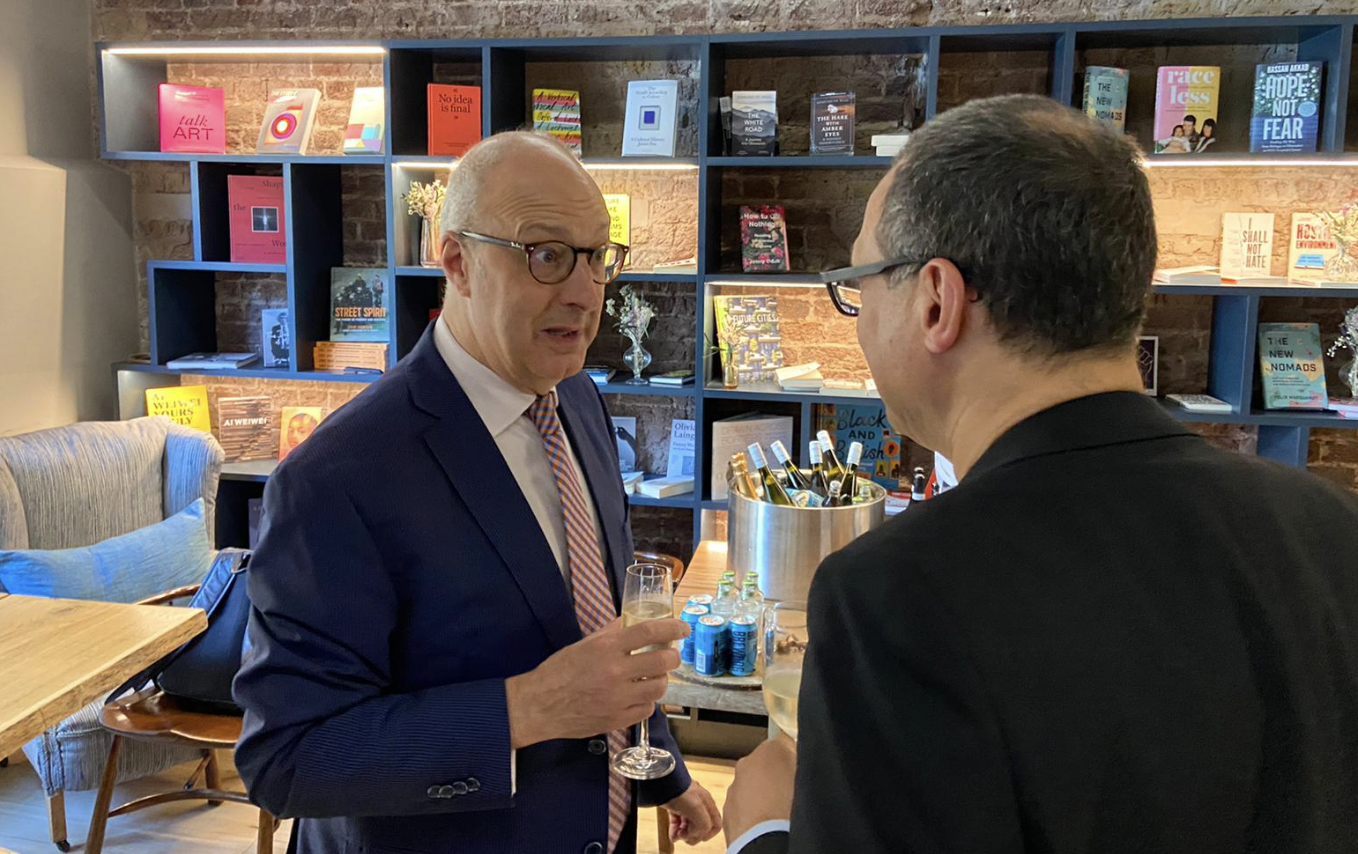In order to make the changes necessary to achieve promises of equity, inclusion and diversity, organisations need to take a holistic approach – at all levels of the company – to ensure that all of their staff feel that they belong.
Simon Fanshawe OBE explains that it’s our differences and how we combine them that create the diversity that generates innovation, fresh thinking and success. An essential part of this is creating a culture where every employee feels a true sense of belonging regardless of their background.
But how do we actually do this?
- Personalise conversations with people and enable managers to do the same with colleagues.
Providing managers with the required skills and training to effectively navigate conversations with their colleagues on a personal basis is essential to achieving a feeling of being ‘seen’ at work. - Make the jargon around DE&I and EVP meaningful and humanised.
Making sure every employee has clarity and can relate personally to the terminology that surrounds DE&I and EVP will result in a stronger and more sustainable uptake. This is crucial for a successful all-level approach. - Individualise the feeling of belonging.
Belonging also encompasses helping people understand explicitly how they as an individual can make a meaningful contribution to their organisation. Understanding where you fit within your organisation can greatly improve feelings of belonging.
How do we navigate conversations about diversity and inclusion?
Psychological safety is key to ensuring people feel safe to express their unfiltered opinions.
Engendering a grounded and substantive sense of psychological safety in everyday conversations (about everything, not just DE&I agendas) will create a safe space for colleagues to talk about whatever is important in their lives.
Culture and belonging is also about providing supportive environments for people to share differences. This is also where diversity is paramount. According to Race in the Workplace: the McGregor-Smith review, due to the distinct lack of role models that most BME people experience in the workplace, they are more likely to perceive the workplace as hostile. Hostile environments certainly do not encourage meaningful conversations about diversity and inclusion.
How do we create safe spaces for effective contributions in meetings?
Here are some tips for being inclusive of cross-cultural or global teams with attendees with different cultural norms:
- Discuss what each other values from the other contributors, and state this explicitly as terms of reference. This is particularly important for standing meetings; keep reminding participants of this. This will make cultural jarring less obtrusive, and focuses attention on the dividend from the differences
- Focus on employee voice and sentiment qualitatively, ‘how they feel’ as much/rather than DE&I metrics)
- Ask yourself what diversity you are aiming for to create change? This means being honest with yourself about where your company is now and where it needs to get to, all the while being honest with the people you employ about your commitment to change.
Accuracy is vital to creating diverse teams
The premise of Simon Fanshawe’s book is to create teams of difference and to identify and articulate what you want people to bring to the party.
For Fanshawe, accuracy is key, companies don’t know why they are doing DE&I initiatives, and this is often why they fail. Employers are more trusted than politicians and governments by employees – so what are we doing with this trust?
Chiefly, our processes of recruitment, onboarding and training should support difference and reflect any company values that claim diversity as a key tenet.
Concisely put by Fanshawe: “Start where you are, use what you have, do what you can, and pay attention!”.
Future Talent Learning held a thought leadership event for senior HR professionals, in partnership with Hudson RPO. Simon Fanshawe OBE, sharing entertaining and inspiring insights on culture, purpose and belonging from his new book, The Power of Difference.
We’ve based this blog on the collective wisdom of the panel and senior HR leaders who attended.
Further reading
Simon Fanshawe OBE, The Power of Difference.
Amy Edmondson, The Fearless Organisation.
Matthew Syed, Rebel Ideas: the Power of Diverse Thinking.
About Simon Fanshawe OBE
Simon Fanshawe OBE is writer and broadcaster. He contributes frequently to British newspapers, TV and radio. He is also now a consultant and non-executive director of public and private organisations.
Fanshawe was one of the founders of the LGBT charity Stonewall and now a partner at Diversity by Design.
About Future Talent Learning
Our flagship Transformational Leadership Programme delivers inspirational apprenticeships to upskill graduates, aspiring managers and managers in over 50 of the world’s leading employers.
It’s 100% virtual and delivers against two management apprenticeships, so it can be funded through your Apprenticeship Levy. Clever right?

















